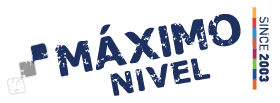As we’ve seen with our Slang articles on Guatemala and Peru, the Spanish spoken in Latin America can differ greatly from country to country. Having had a variety of indigenous influence throughout the Americas, the Spanish that resulted was a mix of native accents and vocabulary unique to each region. Here are 10 Costa Rican slang words to know before visiting the land of pura vida.
Pura Vida
More a special phrase to Costa Rica than actual slang, “Pura Vida” is a term understood by any native Spanish speaker. The phrase literally translates to “pure life”. However, Costa Ricans must believe in the theory of “speak it into existence” because they say it so often that they literally have developed their country into one of pure life. As leaders in conservation and sustainability of their wildlife, there is no place in Costa Rica you can’t go to feel the buzz of liveliness.
In Costa Rica, the phrase “Pura Vida” is commonly used interchangeably with “hey”, “what’s up”, “how are you?”, “take care”, “goodbye”, and almost any other greeting, well wishes, or farewell you can think of. It’s how the people live–pura vida.
Mae
Mae is one of those slang words you will hear 63 times within the first five minutes of engaging in conversation with a “tico”. Ok, maybe I’m exaggerating by just a bit. But it should be noted that Costa Ricans use “mae” more than someone from the U.S uses “bro”, “dude”, or “man” combined. And that’s exactly the sentiment. For Costa Ricans mae=bro. So, pura vida, mae.
Birra
In Peru they say “chela” in Costa Rica they say “birra”–both mean beer. Note that Costa Ricans don’t pronounce their “R’s” like any other Latin American country, either. That frustrating rolling of the tongue that’s so difficult for a non-native speaker? Forget about it. Technically, Costa Rican pronunciation of this slang term would sound just like “beer-a”. Hey, maybe this is the place for you!
Goma
Ladies and gentlemen, I present to you the slang term for the result of having too many birras—“goma”. In Costa Rica, “goma” is used to express that deathly feeling everyone wishes to avoid without trying to avoid it– a hangover. Though “goma” literally translates to glue in English, there’s some sense to this. Hangovers tend to stick like glue, don’t they?
Tuanis
“Tuanis” is definitely one of those slang terms you will hear nowhere else. In Costa Rica, “Tuanis” means “fine”, “cool”, “nice” or “ok”. For example, “Que tuanis, tome tantas birras y no levante con goma” means “Sweet, I drank so many beers but didn’t wake up with a hangover”.
Al chile
Another phrase unique to Costa Rica—“al chile”. Literal translation means “to the chile”, but when a Costa Rican uses “al chile” they mean it as “seriously!”. They might also ask you, “al chile?!” or “seriously?!”. How did this come to mean something so completely unrelated? We have no idea, mae, but it’s tuanis.
Que pega
In Spanish, to “pegar” means to “stick to”, so it makes sense that when a tico exclaims “que pega!” they are expressing their agitation with something or someone they find annoying. Just like having sticky hands, or have someone clingy who constantly tries to stick to you, it would be considered annoying. Hopefully, they aren’t talking about you when you hear it.
Dar Pelota
The translation for “dar pelota” is literally to “give ball”. Again, one of those nonsensical phrases from Costa Rica. Ticos use this phrase to mean “pay attention”. Dar in this case is conjugated depending on who you are speaking to or what you are speaking about. For example: “yo doy pelota” is “I pay attention”, or “dame pelota” is “give me attention”.
For example, “Aye, mae, dame pelota y pásame una birra!” means “Dude, pay me some attention and pass me a beer!”
Chunche
For Costa Ricans, the word “chunche” refers to an object which you don’t immediately name. Just like “thing”. New learners will love this word as it can replace the name for any object you don’t know in Spanish.
Jalarse Una Torta
“Jalarse una torta” in Spanish means to “pull a cake or patty” depending on the translation. However, this phrase is used in Costa Rica when someone makes a mess or does something wrong, and then gets in trouble. In the phrase, “jalar” is conjugated to make sense of who or what is being discussed.
For example, “Manuela se jaló una torta cuando quebró la ventana” means “Manuela got in trouble when she broke a window”.
